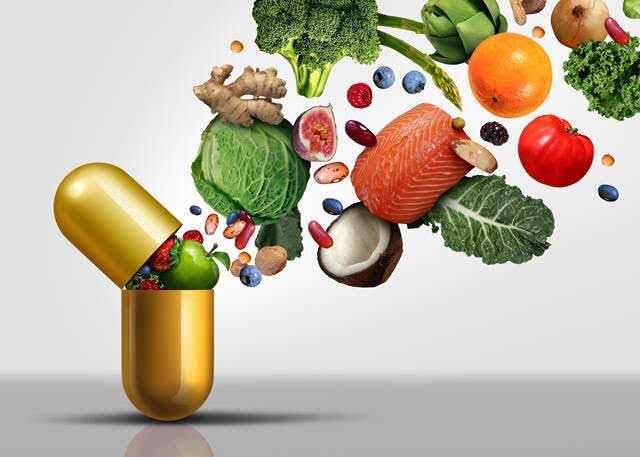This content is for informational and educational purposes only. Always consult a qualified healthcare provider.
Last Updated on February 5, 2024 by Grace Oluchi
📋 Table of Contents
Introduction:
The use of health supplements and vitamins has become increasingly popular in recent years. People take supplements and vitamins for various reasons, including to improve their overall health, prevent diseases, and address specific health concerns.
However, the benefits and risks of these supplements and vitamins always get people talking and it can be challenging to determine which ones are safe and effective. This article explores the benefits and risks of popular health supplements and vitamins.
What are Supplements and Vitamins?
Supplements are products we take orally that provide additional nutrients to the body beyond what we get through regular diet.
Vitamins are essential organic compounds that are required in small amounts for normal bodily functions and must be obtained through diet or supplements.
Benefits of health supplements and vitamins:
Health supplements and vitamins can provide numerous health benefits. Here are some of the most popular supplements and vitamins and their benefits:
- Vitamin D: Vitamin D is essential for bone health and can reduce the risk of osteoporosis. It also plays a role in immune function and can reduce the risk of autoimmune diseases.
- Omega-3 fatty acids: Omega-3 fatty acids can reduce inflammation, improve heart health, and reduce the risk of depression and anxiety.
- Probiotics: Probiotics can improve gut health and reduce the risk of digestive issues, such as irritable bowel syndrome and inflammatory bowel disease.
- Multivitamins: Multivitamins can provide essential nutrients that are often lacking in the diet, such as vitamin C, vitamin E, and folic acid.
- Vitamin B12: Vitamin B12 is essential for nerve function and can reduce the risk of neurological disorders, such as dementia.
- Iron: Iron is essential for the production of red blood cells and can reduce the risk of anemia.
- Zinc: Zinc is essential for immune function and can reduce the risk of infections.
Risks of health supplements and vitamins:
While health supplements and vitamins can provide numerous health benefits, they can also pose risks. Here are some of the risks associated with popular health supplements and vitamins:
- Vitamin A: High doses of vitamin A can be toxic and lead to liver damage, bone loss, and birth defects.
- Vitamin E: High doses of vitamin E can increase the risk of bleeding and may interfere with blood-thinning medications.
- Vitamin C: High doses of vitamin C can cause stomach upset and diarrhea.
- Iron: High doses of iron can be toxic and lead to liver damage, heart failure, and death. Iron supplements should only be taken on the advice of a healthcare professional.
- Calcium: High doses of calcium can increase the risk of kidney stones and may interfere with the absorption of other nutrients.
- St. John’s Wort: St. John’s Wort can interfere with the effectiveness of certain medications, such as antidepressants and birth control pills.
- Echinacea: Echinacea can cause allergic reactions in some people and may interfere with the effectiveness of certain medications.
Tips for choosing supplements and vitamins:
When choosing supplements and vitamins, it’s essential to consider the quality and safety of the product. Here are some tips for choosing supplements and vitamins:
- Choose reputable brands: Choose supplements and vitamins from reputable brands that have been tested for quality and safety.
- Avoid mega-doses: Avoid mega-doses of vitamins and minerals that exceed the recommended daily allowance.
- Check for certifications: Look for certifications, such as the US Pharmacopeia (USP) or ConsumerLab.com, which indicate that the product has been tested for quality and safety.
- Read labels carefully: Read the labels carefully to ensure that the product does not contain any harmful ingredients or allergens.
- Talk to your healthcare provider: Talk to your healthcare provider before taking any supplements or vitamins, particularly if you have a medical condition or are taking medication.
11 health supplement and Vitamins to chose from.
The Key Takeaway.
Health supplements and vitamins can provide numerous health benefits, but they can also pose risks. It’s essential to choose supplements and vitamins from reputable brands and to avoid mega-doses that exceed the recommended daily allowance.
Before taking any supplements or vitamins, it’s important to talk to your healthcare provider, particularly if you have a medical condition or are taking medication. By following these tips, you can safely and effectively incorporate supplements and vitamins into your daily routine.
What are supplements and vitamins?
Supplements and vitamins are dietary products that are designed to provide additional nutrients that may be lacking in one’s diet. They come in various forms such as pills, capsules, powders, and liquids.
What are the benefits of taking supplements and vitamins?
Taking supplements and vitamins can help support overall health by providing the essential vitamins and minerals needed for optimal health. They can also help prevent nutrient deficiencies, which can lead to a variety of health problems.
Are supplements and vitamins safe?
Supplements and vitamins are safe when taken as directed. However, some supplements may interact with medications or have side effects, so it’s important to talk to a healthcare professional before starting any new supplement regimen.
What should I look for when choosing a supplement or vitamin?
It’s important to look for one for your needs and contains the essential vitamins and minerals you need. It’s also important to choose a reputable brand and read the label to ensure that the supplement contains the appropriate dosage and is free of harmful additives.
Can supplements and vitamins replace a healthy diet?
Supplements and vitamins should not be used as a replacement for a healthy diet. While they can help fill nutrient gaps, a healthy diet that includes a variety of fruits, vegetables, whole grains, lean proteins, and healthy fats is the best way to ensure optimal health.

